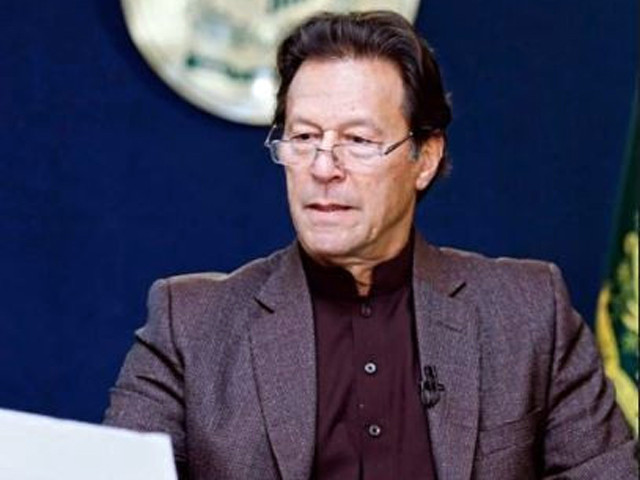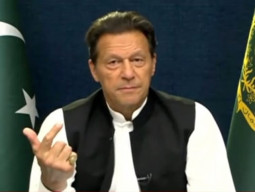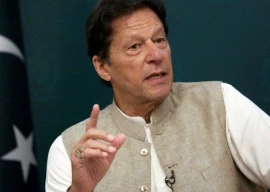
The grueling political uncertainty ended around midnight when the daylong session of the lower house of parliament convened to vote on the no-confidence motion culminated with the dismissal of Imran Khan, the 22nd prime minister of Pakistan, who became the first chief executive to be removed from office after losing majority in the National Assembly.
Khan’s PTI party, which governed the country for over three-and-a-half years, had been struggling to stay in power as its allies betrayed to joined hands with the opposition parties that had joined forces against the government.
While Pakistan’s history has been marred with political instability, no prime minister has ever been removed from office through a no-trust motion.
Read more: Imran Khan becomes country’s first PM to be ousted through no-trust vote
The country, which has witnessed decades of direct military rule and unstable civilian governments, managed to evade the dismissal of its chief executive through a vote of no-confidence for over seven decades although many were removed from power through one way or the other.
Although Article 95 of the Constitution, which allows for the opposition to challenge the premier’s claim to power if they have enough numbers in parliament to oust them, had been evoked in the past, the opposition’s recent success remains unprecedented.
In 1989, Nawaz Sharif had moved a no-confidence motion against then-prime minister Benazir Bhutto, but the latter survived with 125 votes against the opposition’s 107 votes.
Similarly, in 2006, Shaukat Aziz managed to retain his premiership after the opposition’s bid to oust him failed when they could only manage 136 votes against the required 171 votes.
Also read: IHC to hear emergency petition to prevent PM from de-notifying COAS
When this motion was submitted against the government earlier in March, the opposition had sizeable numbers as certain lawmakers from the then-ruling party openly rebelled against it, prompting the government to evoke certain constitutional clauses to restrain dissent.
However, the importance of dissenting members fell short when certain coalition partners, including the Muttahida Qaumi Movement-Pakistan (MQM-P) and the Balochistan Awami Party (BAP), withdrew from the ruling alliance.
Later, the government, sticking to its narrative of the opposition being complicit in an alleged foreign conspiracy for regime change in Pakistan, dismissed the no-confidence motion in the lower house citing threats to the country’s sovereignty, before Imran announced the dismissal of the National Assembly.
But it was the Supreme Court’s (SC) verdict overturning the ruling read by the deputy speaker and the premier’s subsequent action that paved the way for the tabling and voting on the said motion.
Interestingly, no prime minister has completed their constitutionally-mandated term in Pakistan. The first premier in the country’s history was assassinated, and for the next seven decades some were ousted through direct military intervention or dismissal through presidential orders or by disqualification through court verdicts.







1731910868-0/Copy-of-Untitled-(45)1731910868-0-270x192.webp)












COMMENTS (1)
Comments are moderated and generally will be posted if they are on-topic and not abusive.
For more information, please see our Comments FAQ